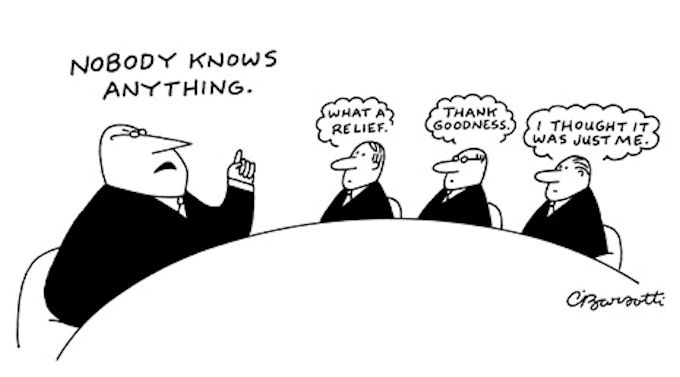
Desktop Tablet Phone
Which is more important, the economy or human life?
Or is that entirely the wrong question?
Covid-19, the Pandemic
As with climate change, we have been warned about a global pandemic for a long time. Did we listen? Did we do anything about it? It's easy to put off taking action on a threat that's not immediate.
We managed to get over fear of the 1918 influenza pandemic (Spanish flu), Polio, and HIV-Aids. In South East Asia a coronavirus dubbed SARS-CoV-1 (2003), was a major threat. They had a high death rate, and in the process they did prove that mask wearing and social distancing was effective in reducing infections. The rest of the world had yet to learn that lesson.
Then along comes Covid-19; which is new (Described as novel.), and for which in the first few months there were few medical solutions except for the treatment of symptoms. Medicate for pain, help the breathing, clear fluid from the lungs, and encourage rest. Looking for a medical solution in these early months wasn't very productive. Over time medical treatment in hospitals has improved. Doctors found that several treatments were helpful, even something as simple of ensuring the patient wasn't lacking vitamin D. Acute care is now often avoided.
When Covid-19 appeared (Also called SARS-CoV-2) Taiwan, and the countries of SE Asia were the quickest to develop really effective public health responses. New Zealand, did have a quick lockdown, but we were badly under-prepared, no habit of mask wearing, a lack of protective equipment for health workers, no effective contact tracing system. Australia also managed to avoid the worst of the pandemic.
From 9 News Australia, 12 March,2020.
Prime Minister Scott Morrison made a national address to the country outlining the government's planned action to combat the coronavirus outbreak.
This was promises, promises, promises, typical of political leaders around the world. But that's unfair, Australia did get it's act together, the Federal Government did lead, and like New Zealand after making a few faltering steps, in the end Australia did a fairly good job.
The failure of nation states to cope with Covid-19 is a present example of the lack of policy and ![]() investment in future public health, even though for more than 20 years there were clear warnings that one day there would be a serious disease outbreak around the world. As with the threat of climate change, we have been warned, but we've chosen to ignore the problem in favour of more "economic growth." That will be costly.
investment in future public health, even though for more than 20 years there were clear warnings that one day there would be a serious disease outbreak around the world. As with the threat of climate change, we have been warned, but we've chosen to ignore the problem in favour of more "economic growth." That will be costly.
New Zealand Action
New Zealand as an island nation, was able to close the border tightly. We were also able to quickly increase the capacity to do polymerase chain reaction Covid-19 tests. Test samples are taken locally, not at a hospital. Testing was at first only for people with symptoms and close contacts, but later everyone who wanted a test was encouraged to get one. There was a focus on developing contact tracing capability. Several hotels were contracted to become quarantine centres.
The Prime Minister and the Director General of Health began a long series of 1pm live telecasts explaining how many cases there were in New Zealand, and informing the public in great detail how many cases there were, in the community and in quarantine. For many weeks the best information we had didn't tell us how far into the community the infection had spread. Original sources of Covid-19 seemed to grow into a wider and wider outreach, but eventually lockdowns, and the contact tracing process got on top of the problem.
From Stuff:
The highs, lows, and outright weird of the 1pm Covid press briefing with New Zealand's Prime Minister Jacinda Ardern and Director-General of Health Dr Ashley Bloomfield.

Telling the truth? In a decision making situation where there is little known about the situation that is developing, doing nothing is the common outcome. A prime minister perhaps feels a duty to re-assure people that the situation is well understood and that the government and the appropriate authorities have everything under control. If you don't know, BLUFF. Around the world, bluffing, and hoping for the best, became a key political strategy with disastrous results.
This has the unfortunate effect of working in the short term. Maybe that buys enough time to get the control being claimed, but in the case of Covid-19 that was almost never the case. The credibility of political leaders and their advisers was badly damaged.
![]() More than 75% of all nations were severely hit by the Covid-19 virus that was always spreading, suddenly appearing in clusters of infection. Politicians said that they were ready, that they would protect the elderly, that they would protect health care workers. They failed miserably. Politicians reassured people with promises that were never kept. Promises that should have been tempered with "we don't know," but instead were made on the basis that "everything is under control." That's where given the later failure of the system, public trust in the statements of leaders in public health and the politicians, quickly wains.
More than 75% of all nations were severely hit by the Covid-19 virus that was always spreading, suddenly appearing in clusters of infection. Politicians said that they were ready, that they would protect the elderly, that they would protect health care workers. They failed miserably. Politicians reassured people with promises that were never kept. Promises that should have been tempered with "we don't know," but instead were made on the basis that "everything is under control." That's where given the later failure of the system, public trust in the statements of leaders in public health and the politicians, quickly wains.
Date today, 18th April, 2021: The world Health Organisation reports world wide deaths exceed 3 million. But worse there are more people infected today, with Covid-19, than at any time. The pandemic is not in control. People are relying too much on the vaccines that are "coming" but may be a long time delayed. Basic public health recommendations can stop the progress of the virus, but in too many places that advice is ignored. In some very crowded places social distancing may not be possible. In places where social welfare is weak, people who are sick may refuse to self isolate, claiming they have to work or go hungry.